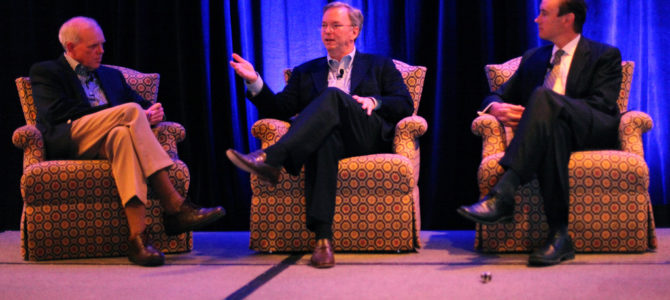
If we can escape from the pink police state, we can only do so by understanding its origins—and we can only understand its origins by grasping its relationship to our own souls or psyches. Rather than finding the answer in economics, public policy, democratic politics, or even religion, we are called to mere anthropology.
There are few guides for that kind of turn, away from conceptual schema and historical analysis. Fortunately, the best of them are already well-known to us: Plato and Alexis de Tocqueville. These two political theorists are, not coincidentally, master anthropologists.
They are separated by a vast historical gulf. But they are valuable to us for just that reason. Plato offers us a pre-modern, pre-Christian anthropology. Tocqueville offers us a modern, Christian one. At a time when many observers would say that life is increasingly post-modern and post-Christian, Plato and Tocqueville make strikingly different but strangely complementary wagers about how to escape our bad regime. What’s more, they help us contextualize and appraise the foremost post-modern, post-Christian wager about how to escape.
Consider Plato’s Cave
Socrates wagered that the only escape from a bad regime was a good soul. Although Socrates, and Plato after him, lacked a robust theology of sin and redemption, they saw philosophy as a sort of creed, capable of rescuing human beings from the error they reflected outward into the world and which manifested bad regimes.
The good soul was not, however, saved by faith or deeds. It was a soul who loved the practice that readied it for rescue. Even still, rather than an affirmative moral code, Plato’s Socrates offered a fable. In it, we humans lived fettered in a cave. In the firelight, we watched mere shadows on the walls, mistaking them for the real-life situations that cast them. Rather than vegetating in ignorance, however, we became quite active in our chains. We created competitions: those who remembered the patterns of shadows that had been, and accurately guessed the patterns of shadows to come, won our esteem, along with fabulous prizes. These competitions were so engrossing that they practically constituted what we experienced to be real life.
One day, however, someone happened to be struck by a shaft of light from the outside world—light emanating from a place which those inside the cave lacked the conceptual apparatus to understand, or even to imagine. This ahistorical experience, and it alone, supplied humans with conceptual access to reality-based thinking. Indeed, instead of revealing to us a neutral, objective fact about “the world,” it disclosed to us what being human actually entails.
The good news about being human, according to Plato’s Socrates, is that we can choose to orient ourselves in a way that can recognize and receive the irruption of awareness if and when it comes to us. The bad news, however, is that unless and until it does, we labor fruitlessly at being human in the metaphorical cave. There, it endlessly, mistakenly occurs to us that we can learn everything ranging from “accurate facts” to “good values” to “human nature” and “reality” itself—if only we become expert at remembering what we imitate from those around us who are best at doing the same.
The awareness we can receive, if our souls or psyches are well-oriented toward readiness, discloses the opposite of what we reasonably but foolishly conclude in the cave. Inside the cave, we think that to be human is to be rational; in the awareness that arises from outside the cave, we apprehend that to be human is to be creatures who remember and who imitate.
Four Types of Regimes and Souls
Inside the cave, we face a choice among three different types of regimes and souls. First, we could choose a regime wherein the master idea is honor. Honor guides what and how to remember; honor guides who and how to imitate. Second, we could opt for a regime ruled conceptually by wealth. Rather than organizing our memory and mimicry around the best of human quality, we can organize them around the most of human quantity. Third, we could select a regime in which neither honor nor wealth are prized above all, but in which we remember and re-enact pretty much all things, so long as it seems they can be prized without necessarily excluding any others.
But there is a fourth type of regime, which few seem apt to choose, but which appears nonetheless. It corresponds to the master idea of power. Here, no particular thing is withheld from anyone; but access to everything is preserved for a single master alone.
In Socratic terms, these regimes are labeled timocracy, oligarchy, democracy, and tyranny, in descending order. And the master ideas that animate them are associated with the things that arouse love from their corresponding soul type. As many students and teachers of Socrates are well aware, this fable of regimes comes with a theory of history, too: each regime type degenerates into the next.
What’s less often discussed, as Joshua Mitchell has pointed out in “Plato’s Fable,” is the anthropological account that Plato’s Socrates offers as to why the regimes inexorably decay.[*] Rather than some esoteric mystery, the account is so simple and straightforward that almost everyone today can readily see it at work in their own lives.
The plain truth is that we humans are so good at imitating and remembering that it makes us awful at resting on the one hand and creating on the other. Our innate drive to imitate in accordance with our memories makes it almost impossible for us to repose in earthly peace. At the same time, it also makes us fall again and again into mistaking flawed imitations for unique creations. We think we are making autonomous choices; we are actually re-enacting involuntary patterns.
Indeed, as Friedrich Nietzsche would later suggest, we are so good at imitating and remembering because it was essential to our survival. “Man could never do without blood, torture, and sacrifices when he felt the need to create a memory for himself,” Nietzsche wrote; “the severity of the penal code provides an especially significant measure of the degree of effort needed to overcome forgetfulness and to impose a few primitive demands of social existence as present realities upon these slaves of momentary affect and desire.”[†] Not only did we need imitation and memory to survive the natural world, we needed expertise in their practice to survive ourselves and one another.
Reach for the Stars
Unlike Plato’s fable, the fable of modern liberalism—the small-l liberalism shared until very recently by the vast majority of Republicans and Democrats alike—sees the history of memory and imitation in a very optimistic light. Rather than an inexorable decline toward tyranny, our souls and our regimes have progressed toward a point at which we are finally free to autonomously create without being cruel to anyone or anything. As Andrew W.K. recently put it: “In the old days, we had to use almost all our power just to survive—to find water, shelter, food. Little by little, we learned to master our environment, and later, to master ourselves. And now we can dedicate as much of our energy and precious time mastering and pursuing our highest ambitions and dreams.”
Here is the ideal of democracy just as Plato’s Socrates presented it—the regime ruled just as much by the love of all compatible pleasures as the souls within it.
Andrew W.K., however, has a Nietzschean (and Emersonian) edge to his democratic vision. He warns that a very modern and rational voice in your head may instruct you “that all of this is unrealistic or magical thinking. Well, that is exactly what it is. We WANT magic. We want to take reality and make it unreal until it is reformed in the way we envisioned. The naysayer in the back of your mind is simply fear—fear that things won’t work out and you’ll feel stupid for trying, fear that it will hurt and be too tiring to work this hard. But nothing can hurt more than giving up and living with the knowledge that you abandoned hope. For what? To be reasonable? To be responsible? To make someone else happy? Those are all tricks and pitfalls and ways to justify giving up. Deep down inside, you know that’s true.”
You know who else knew that was true?
But unlike Adolph Hitler, Andrew W.K. is an American, and one of the great blessings visited upon America is the naiveté about power found in its origins as a new country in a new world. To be sure, native Americans and African Americans have suffered grievously under that naiveté. But it has also spared America from the cataclysmic oscillations between reactionary re-enchantment and revolutionary disenchantment that ruined European civilization and plague it still. From the standpoint of Plato’s fable, America’s residual innocence about power has arrested democracy’s decay into tyranny.
Democracy in America
The United States of America would be an exceptional nation indeed if it was born free from, and immune to, the historical curse that has so stubbornly undermined peace and freedom in Europe and its former colonies—however “democratic” they make themselves out to be. America’s unparalleled fortune does not stop there, however. We American humans also benefit from an exhaustive, penetrating account of why we are exceptional in this way. Its name: “Democracy in America.”
Tocqueville’s magnum opus is a book that requires years, if not decades, to wrestle with and absorb. Fortuitously, it is not that difficult to understand his anthropology—or its significance in accounting for America’s exceptional arrest of Plato’s fabled regime decay from Democracy to Tyranny.
Return for a moment to the idea that Europe is cursed with a different sort of arrested development. Today, the uneasy reign of the European Union—a de-centered combination of center-left democracy and center-right oligarchy—is imperiled once again by a longing for reactionary re-enchantment on the Right and revolutionary disenchantment on the Left. The Europe predicted by Benjamin Constant, wherein Napoleon figured as a last gasp of the obsolete “age of conquest,” and the “age of commerce” would spread gentle mores and reciprocal advantage among all, seems as distant as ever.
On this analysis, Europe is not just torn between “ideological” extremes of Right and Left. Those political poles have gathered strength because they map onto competing anthropologies, which European culture has failed to provide a way to reconcile. The trouble is that the anthropology Tocqueville articulated has been lost on contemporary Europeans, no less than their more honor- and money-loving ancestors. The European soul, if we may, seems not to grasp that the oscillation between reactionary re-enchantment and revolutionary disenchantment is the political manifestation of the oscillation within the soul that defines the human condition.
That oscillation, as Mitchell, again, has explained, is not just the concern of Tocqueville. “Whatever their differences, Augustine, Hobbes, Rousseau, and Tocqueville are unanimous in their concern with the instability of human life, with its tendency to get wholly and broodingly caught up in itself or pridefully and explosively to overstep its bounds.”[‡]
Tocqueville’s insight on this matter commands our closest attention, because it is Tocqueville, alone among the great political anthropologists, who focused his closest attention on us. But Mitchell shows that Tocqueville’s anthropology makes adequate sense to us when illuminated by that of St. Augustine. For Augustine, like Tocqueville, only a “return” to a certain “Source” may “absolve human life of its unrelenting oscillation”—between the soul’s pull inward, toward consuming self-obsession, and its pull outward, toward the unquenchable hunger to consume the world.
Love of Autonomy and of Power Feed Each Other
Augustine’s idea of the saving Source is different from Tocqueville’s. For Augustine, there is no rest but in God. For Tocqueville, the problem is to preserve fruitful, reciprocal action, which, he suggests, can only be maintained in a democratic age at voluntary sites of face-to-face association. But both Augustine and Tocqueville lead us to understand that Americans—because they are humans—oscillate in a manner no less inherently unstable than that of the Old World. We simply have a better opportunity to ameliorate those oscillations, slowing their pace and buffering their psychological impact as they shuttle us toward their competing, yet complementary, extremes.
This amelioration can arrest what Plato’s Socrates would say is the inevitable slide from lively democracy into decadent tyranny. To be sure, Tocqueville does not share Plato’s pre-modern view of historical development. Where Plato charts a path of political decay, Tocqueville warns that the collapse of the “aristocratic age” unleashes great dynamism and optimism, only to gradually discourage the many as they encounter the invisible barriers to ambition and advancement that arise in the “democratic age,” when competition is ubiquitous for all but a tiny minority of the naturally ambitious and talented.
Once the optimism of the transitional age between the two falls away, “the love of merely human liberty” gradually loses its ability to mask the “secrets that predispose the soul toward anguish, if not tyranny.”[§] These secrets, Mitchell puts it, are twofold: “on the one hand, the hidden love of the powerful state that lurks in the hearts of the solidary souls who purport to love their freedom; on the other hand, the taint of envy that lurks in the hearts of the souls who love equality.”[**]
These secrets reveal that “the soul who advocates top-down government and the soul who purports to love liberty above all else” express attitudes that only seem opposed to one another; actually, they “are aspects of a single phenomenon, namely the inevitable impotence that attends independence.”[††]
Don’t be mistaken: Tocqueville shared the ardent love of political freedom, exercised through rights, that Americans have long held dear. He cautioned, however, that so many of us become isolated and interchangeable that potentially all of us end up paying prideful lip service to a false kind of autonomy. The point has recently, if inadvertently, been underscored on Twitter. There, one clever music video director quipped that “Beyoncé albums follow a simple formula.” The message of the odd tracks, he suggested, was “I don’t need a man;” the even tracks, “I miss you baby.”
With jokes like that, some politicians of gender detect more than a whiff of sexism in the air. Tocqueville, by contrast, would suggest that, in a democratic age, we are all apt to repeat the pattern wherein prideful declarations of independence mask an envious longing for some force powerful enough to equalize our power and status relations. In Tocqueville’s view—and that of Hobbes—such a longing can only be gratified completely by a government capable of totally overawing everyone, thereby erasing our pride and our envy.
But there is no way of knowing how long the transitional age will endure before the democratic age fully sets in. Until it does, Tocqueville intimates, we will want experience both ways. For psychological and biological reasons, we will crave autonomy and servitude in equal measure. The implications of this train of thought are sobering. If Tocqueville is right, the onset of the democratic age lays bare a shocking truth. Freed from the artificial, hierarchical trappings of aristocratic honor culture, the psychological oscillations encoded into our human biology can forcefully show forth in politics—dividing life into an official sphere, ruled by the love of health and safety, and an unofficial sphere, ruled by the love of generative and destructive power that officialdom sanitizes and restricts.
An Unstable Regime, Like Us
Tocqueville did not manage to foresee the advent of the pink police state. But present-day Tocquevilleans like Peter Augustine Lawler have prepared the way in noting that “one basic insight of Tocqueville is that things are always getting better and worse.” This strange phenomenon shows up for us as an increasing servile docility in the official realm and an increasing autonomous beastliness in the unofficial realm.
Tocqueville understood that this bifurcation of life could indeed lead to tyranny in a democratic age. Even in an environment of complete servility, where there is no opportunity to channel ambition, pride, and talent into politics, our restless psychological transactions burst through. One “who has so completely sacrificed his own free will does not, more than any other person, love obedience; he cowers, it is true, before the pettiest officer, but he braves the law with the spirit of a conquered foe as soon as its superior force is withdrawn; he perpetually oscillates between servitude and license.”[‡‡] Likewise, life in the pink police state is defined by the perpetual oscillation of the many between servitude within officialdom and license within unofficialdom. What happens on the level of society happens on the level of the individual as well.
Rather than the regulatory state compelling people into behaving this way, it maps itself, so to speak, onto our anthropological propensity to do so. Rather than sealing off the horizon of human experience, as tyrannies do, the pink police state contents itself to seal off official life in the almost literal sense of a quarantine. The oscillation that defines our anthropology is preserved—making us “happier” at some times, and more “miserable” at others, but crucially attending to the two polar urges that have always made up the central psychological problem facing political order.
That is why the pink police state is neither inevitably triumphant nor inevitably doomed. Thanks to the endless interplay of its unquenchable, irreconcilable desires, it is only unpredictably unstable—just like us.
An End to Identity Politics and the Fixed Pie
At last, from this vantage point, we can consider the burning question with which we began. How can we escape? What alternatives remain to the pink police state?
American policy is now so hamstrung by bitter ideological combat that the possibility of practicing politics in the old modern sense seems to be called into question. What can it now mean to seek our emancipation from the pink police state? On what basis can that quest be formulated successfully, as one in which ordinary Americans can share? To put it bluntly: how can political liberty, and not just some personal freedom, fruitfully capture the human imagination?
In times as shadowy as these, with the future always already unknowable, we will need more than cleverness to grope toward a workable answer. But one approach may be found in posing the following question. What sort of relationship with government would you consider choosing if, first, you set aside the fear in your life?
For a Hobbesian, of course, this is an absurd proposition. Hobbes argues forcefully that only the Leviathan can overcome the fear-fueled politics of competition. But contemporary Americans of all classes are often consumed by deep anxieties that only seem to revolve around the relative gains of others. Deep down, we are somewhat aware, we actually fear that our lives are constrained in a far more absolute sense. Rather than the victim of more talented and ambitious competitors, we are caged by something akin to fate—by the ineradicability of our “baggage,” our “issues,” our “mistakes.” In short, our animating fear is that our freedom to choose lives we love (or even like) has been taken away, by—our selves!
It’s in this context that we need to view the acrimony and desperation of our political struggles. In a world where we are stuck with who we are, any politician who threatens to change the distribution of resources in a way that makes who we are “worse off” is direct attack on us personally. In a world where we are prisoners of our identity, all politics is identity politics, and all regulations are possibly proverbial matters of life and death.
To quote Andrew W.K. once again:
When we truly believe that some people are monsters, that they fundamentally are less human than we are, and that they deserve to have less than we do, we ourselves become the monsters. When we allow our emotions to be hypnotized by the excitement of petty bickering about seemingly important topics, we drift further and further away from the fragile and crucial human bond holding everything together. When we anticipate with ferocious glee the next chance we have to prove someone ‘wrong’ and ourselves ‘right,’ all the while disregarding the vast complexity of almost every subject—not to mention the universe as a whole—we are reducing the beauty and magic of life to a ‘side’ or a ‘type,’ or worst of all, an ‘answer.’ This is the power of politics at its most sinister.
As Andrew W.K. judiciously observes: “The best we can usually achieve is a crude and messy map of life from one particular vantage point, featuring a few grids, bullet points, and sketches of its various aspects and landmarks. Anything as infinitely complex as life, reality, and the human experience can never be summed up or organized in a definitive system[.]” Or, as Paul Virilo said: “I have no global answer or unifying vision of what must be done. I only have questions, clips, glimpses. Always fractals.”
Virilio is more concerned with how we live than with what we do. That shift of emphasis points toward a sane anthropology for a post-modern and post-Christian world—one that orients us firmly away from the pink police state. The escape from the pink police state is to be found in this messy, contingent domain. Only there can the anthropological reform begin that is so necessary to recuperating the very concept of liberty. Rather than pinning our hopes on policies, lawsuits, or any kind of political activity, we can only place true hope in the generative power of the unofficial realm of human experience, what Michel Foucault called “biopower.”
Here, life and death are met head on, not in the false guise of mortal enemies but in terms of a deeper reality that transcends such fear-fueled binary thinking. Only if we recognize that life must be affirmed along with death will we escape the peril of all too lifeless lives. Reflecting on the half-growing, half-rotting forests of primeval density that the pioneering Americans ventured deep within, Tocqueville mused: “death in some way helped life forward, as face to face they seemed to wish to mingle and confuse their functions” (27). This, beneath the litter of discarded prophylactics and the wreckage of cold intimacies, is the wisdom of the unofficial sphere, which the pink police state can never master, sterilize, or destroy.
Escaping the Pink Police State
Until the American imagination is captured by the project of ameliorating the anthropological condition that empowers the pink police state, partisans of liberty will struggle to promote their alternatives. If the life of fear preconditions our experience of our relationship with government, the pink police state will from the outset succeed in winning our hearts and minds over to the idea that freedom plays little-to-no role in the foundation of that relationship.
How, then, might we move and inspire Americans toward anthropological reform? What follows is one possible technique.
First, we must consider that we are not primarily rational creatures. This is a huge claim, but one with a long and authoritative pedigree. Thomas Jefferson avowed that “man is an imitative animal.” Said Tocqueville: “Feelings and ideas are renewed, the heart enlarged, and the understanding developed only by the reciprocal action of men upon one another.” Rational action presupposes language, memory, and a propensity to imitate. These faculties, which so often persist when reason has given way, are foundational.
Rather than preference-ranking machines, or ruthless competitors who survive because we’re fittest, our biological equipment actually holds us to a much lower standard. Our brains create patterns from experience and memory, then instruct us to interpret those “events” in accordance with its patterns. We conform the unknown to the known—and imitate our memories—in order to survive. It’s an effective process, but it causes us problems. We instinctively occur to ourselves as the upshot of our patterns of memories and imitations. When that assumption is suddenly called into question by reality, our sense of survival is threatened. We become gripped by fear.
Today, the dominant therapeutic strategy for coping with that fear makes a creed out of our obsession with health and safety. By creating a “safe zone” with “no wrong answers,” we can “come together” in a “happy place” where all dismaying distinctions collapse into a sedating universal whole. This sort of medicalized pantheism is becoming the religion of officialdom in the pink police state.
Some forms of therapy, of course, go another, unofficial route—into the doctrine once known as redemption by sin. These approaches create a risky, dirty space where “there are no rules,” only “safe words” that can call off our intimate theaters of acted-out transgressions. For many conservative culture critics, here is to be found are an even worse problem than what unfolds in the pious realm of officialdom.
A Third Way
The time has come, however, to go beyond such criticisms. A third kind of therapeutic approach has come into view. Instead of creating phony safe zones, it introduces relative strangers into reciprocal, face-to-face conversations—where the topic of conversation is why we pretend we can’t choose how to be. In this kind of setting, people can call themselves and one another to account for claiming that their patterns of imitation and memory rule their choices. While the two forms of therapeutic activity in the pink police state focus obsessively on discovering who we are, this different and better form of therapy recognizes that the first question we must answer is how we shall be.
The conduct of this inquiry opens us to three insights. First, when we drop the superstitious idea that we are fated to be what our patterns make us, we discover we’re already and always radically free to choose how to be. Second, taking action based on that discovery requires a kind of resourceful courage that’s applicable in any human situation. Third, equipped with that courage, we can deal with realizing that, when we clear away the patterns we mistake for ourselves, there really isn’t much “there” there. The “self” that society makes such a big deal about is pretty much just a frantic way of distracting us from our fear that we’re ultimately just as insignificant and interchangeable as everyone else.
This may sound Zen to you. It might sound Christian, in the sense expressed in the motto, “Not I, but Christ in me.” But it is really a more general anthropological insight than a particularly religious one. It helps us grasp an anthropology that abandons the obsessions of modernity without trying to exhume a Christendom that no longer exists. For the “spiritual,” it offers a much-needed rooting in plain reality. For the “religious,” it offers a way of describing grace to the uninitiated and skeptical.
Living a life based on choosing how to be has a supernatural feel. That’s because in living that way, we really are overcoming some of the most basic parts of our biological operating system.
Here is the kicker: although we are free to creatively choose how to be, we are still always incomplete and partial in our imaginings. That our choices and creations have integrity does not mean that they can fill up or complete the world. Truly fruitful creativity requires not just the reciprocal action of others, but the mutual recognition that creative power is inherently contingent on “unknown unknowns.” Choosing how to be is an act of communion, knowingly dependent on a realm we can never master.
If we set down this path toward anthropological reform, we can wind up in a position to practice politics in a radically transformed and fruitful way. We’ll recognize that the pink police state is yet another flawed imitation of our psychological and biological patterns, beaten into our memory day in and day out until we mistake it with reality. Once we separate our fear from our restlessness, we can renegotiate our regime’s settlement between elite technocrats and popular erotocrats. As Tocqueville understood, the political challenge boils down to how well we can become a new kind of community organizers.
[*] For reference and disclosure: Mitchell served as chairman of this author’s dissertation committee.
[†] The Genealogy of Morals, Second Essay, Section 3.
[‡] Mitchell, The Fragility of Freedom, University of Chicago (1999), 43.
[§] Id., 82.
[**] Id. 83.
[††] Id.
[‡‡] Tocqueville, Democracy in America, Book 1, Chapter 5.









